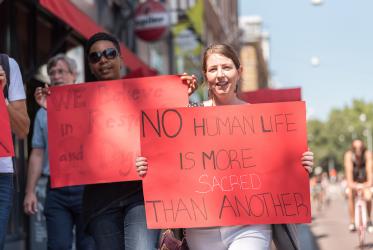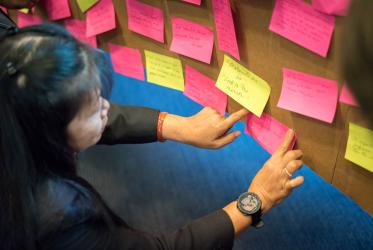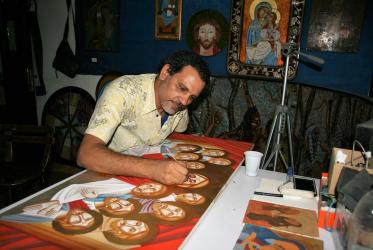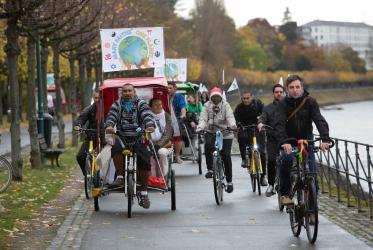Displaying 1 - 20 of 32
05 October 2021
All pilgrim routes lead to COP24
11 December 2018
WCC executive committee tackles public issues
07 November 2018
WCC supports UN petition from French Polynesia
07 November 2018
WCC greets new leadership of ACT Alliance
31 October 2018
What difference does dressing in black make?
02 August 2018
Working toward an AIDS-free generation
26 July 2018
WCC mourns passing of Calle Almedal
11 June 2018
Global church leaders urge COP23 to take action
13 November 2017
A cycling pilgrimage of justice and peace
07 August 2017
G20 summit: call to pray for peace in Hamburg
07 July 2017
Do we need an ecological reformation?
14 June 2017
G7 must address famine
22 May 2017















